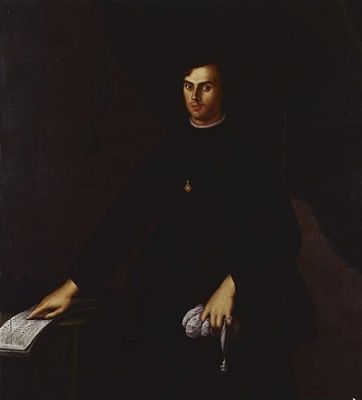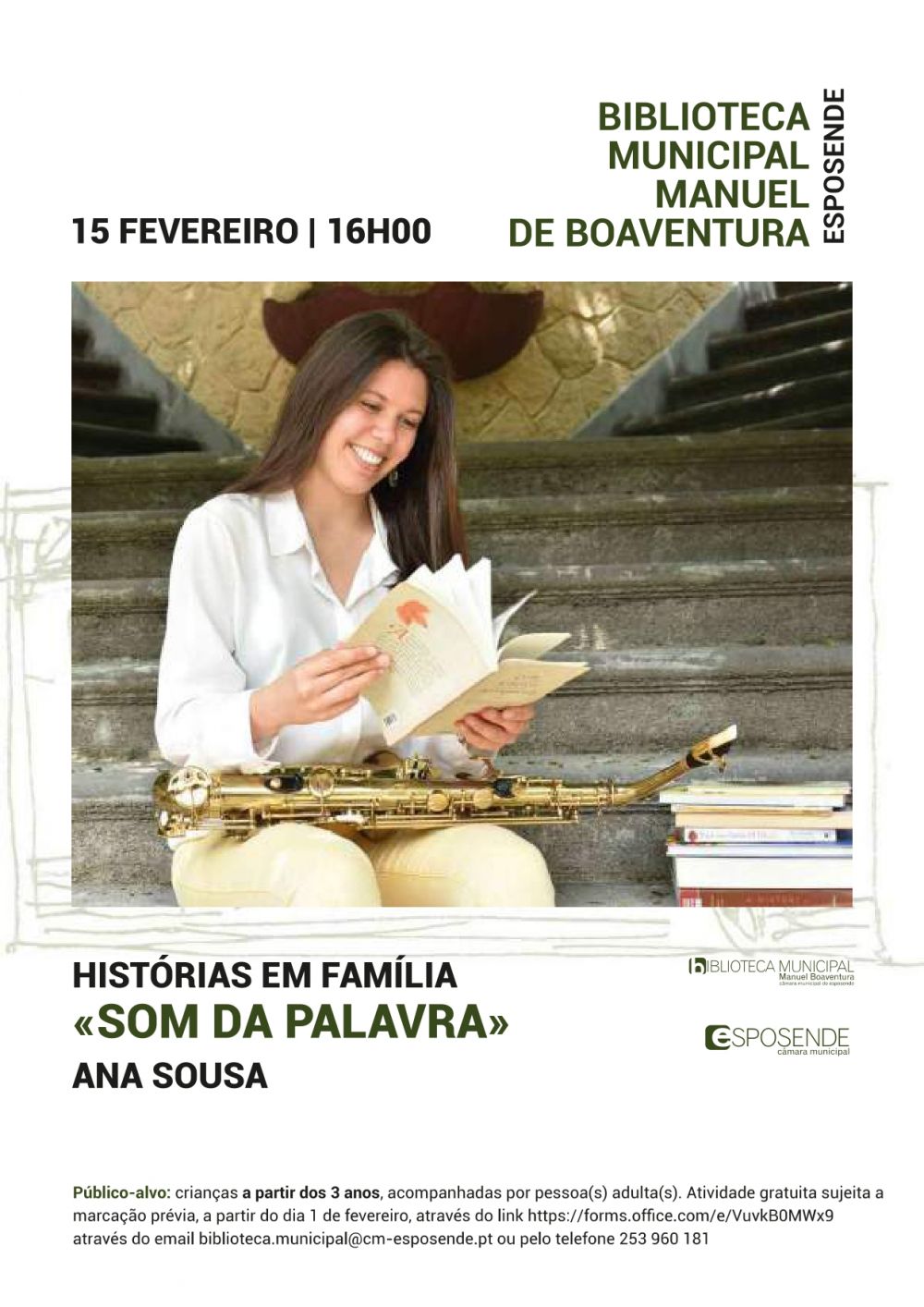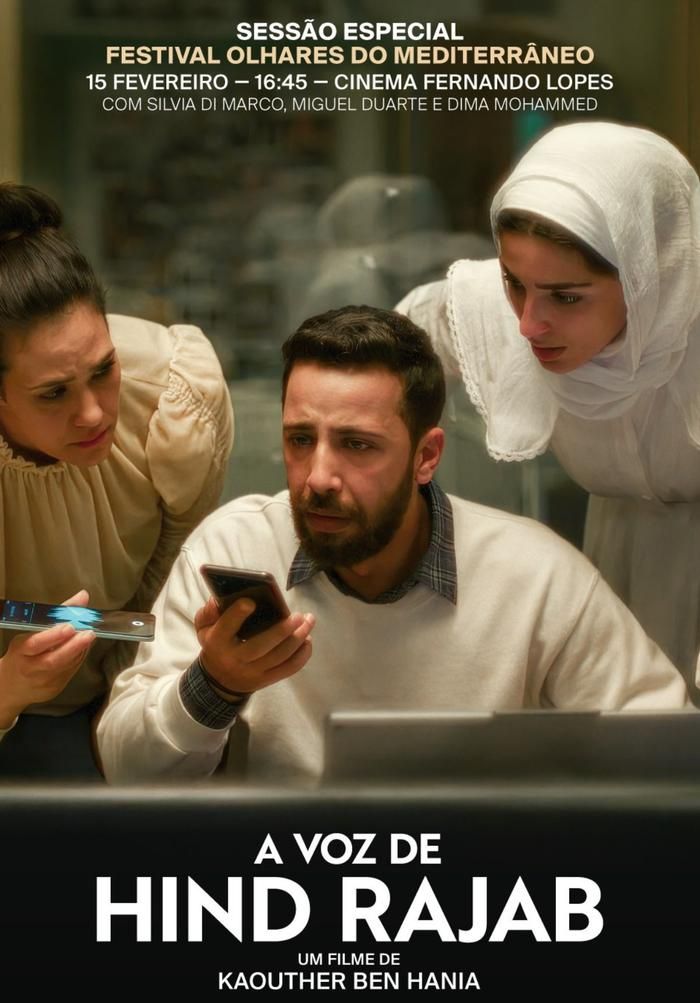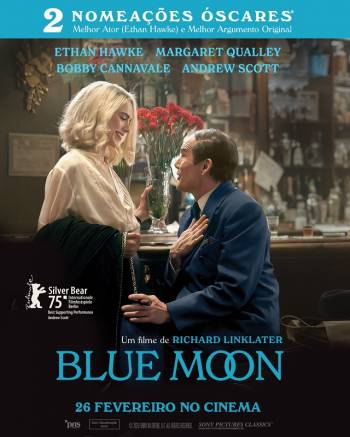Obras de referência da cultura portuguesa
"MAGNIFICAT A 13 VOZES"
de JOÃO LOURENÇO REBELO
Análise de João Pedro d'Alvarenga
Tradução: Alexandra Leitão

João Lourenço (ou Soares) Rebelo tornou-se moço da Capela Ducal de Vila Viçosa em 1624, quando o seu irmão mais velho, o padre Marcos Soares Pereira, ali foi admitido para servir como capelão-cantor. Embora fosse seis anos mais novo que o futuro Rei D. João IV, então Duque de Barcelos, Rebelo acompanhou-o nos estudos de música, sob a orientação do irlandês Robert Turner (que ao tempo era mestre da Capela Ducal) e, possivelmente, também do carmelita Fr. Manuel Cardoso. Em Dezembro de 1640, com o irmão Marcos, que foi mestre da Capela Real a partir de 1641, passou à capital na comitiva do Restaurador.
Pelo menos dois nobiliários seiscentistas referem que Rebelo "esteve doudo em Lisboa (...) El Rei o mandou curar; veio a seu juizo (...) El Rei lhe deu o filhamento com duzentos mil réis de juro e herdade". Tendo-lhe efectivamente feito mercê em 1646 de uma comenda da Ordem de Cristo, D. João IV, em testemunho de amizade e admiração, também lhe dedicou o opúsculo Defensa de la musica moderna, que fez publicar anónimo cerca de 1650. E, dois dias antes de morrer, em 1656, ditou no seu testamento: "Mandei imprimir em Italia, por conta da minha fazenda, as Obras de João Soares Rebello; faço-lhe mercê daquella impressão e deixando huma duzia de volumes em minha Livraria, fará espalhar os mais por Castela, por Italia, e mais partes, que lhe parecer". Esta colecção, que inclui trinta e três peças datadas entre os anos de 1636 e 1653, saiu em Roma da oficina de Maurício e Amadeu de Balmonte em 1657, na forma de dezassete pequenos cadernos respectivos cada um de sua voz ou parte instrumental e o título Joannis Laurentii Rabello Psalmi, tum Vesperarum tum Completarum. Item Magnificat, Lamentationes et Miserere (Salmos, tanto [do Ofício] de Vésperas como [do Ofício] de Completas. (...) também o Magnificat, as Lamentações e o Miserere, de João Lourenço Rabelo).
A música de Rebelo parece-nos um monumento estranho na ainda mal conhecida paisagem musical portuguesa do século XVII. Na qualidade arquitectural abstracta, mais inclinada a ignorar o texto que a sublinhá-lo, nos efeitos sonoros, ora massivos, ora transparentes, erigidos num diversificado jogo de conjuntos frequentemente assimétricos que combinam vozes e instrumentos, na exigente escrita instrumental e na ornamentação vocal, pende para o estilo dos compositores do Seicento norte-italiano, a cujas obras Rebelo tinha acesso privilegiado na riquíssima livraria de música de D. João IV. Mas também não ignora o refinamento contrapontístico, próprio dos compositores portugueses das gerações que a precederam.
Escrito em 1639, o Magnificat vocibus tredecim, aliquibus instrumentis pro vocibus, per versus (Magnificat a treze vozes, com alguns instrumentos em lugar das vozes, por versos) é porventura, das obras de Rebelo, a mais opulenta e uma das que melhor revela aquelas características aparentemente inconciliáveis de modernidade e conservantismo. O efectivo vocal-instrumental distribui-se por três coros a quatro partes, o primeiro de vozes agudas, o segundo de vozes mistas e o terceiro de três instrumentos e uma voz solista, uma parte instrumental aguda suplementar e o baixo-contínuo. A primeira metade do primeiro verso e, depois, os versos pares do Cântico de Nossa Senhora, tratados com variadas e caprichosas cores, densidades e movimento, alternam com os ímpares em imperturbado cantochão.
Gravações disponíveis:
– A golden age of Portuguese music: Diogo Dias Melgás, João Lourenço Rebelo, The Sixteen, dir. Harry Christophers, Coro, [s.d.], COR16020, CD [faixa 11]
MAGNIFICAT FOR 13 VOICES by JOÃO LOURENÇO REBELO
João Lourenço (or Soares) Rebelo became a choir boy at the Ducal Chapel of Vila Viçosa in 1624, when his older brother, Father Marcos Soares Pereira, was admitted as chaplain-singer. Although six years younger than the future King João IV, then Duke of Barcelos, Rebelo accompanied him in his musical studies under the Irish Robert Turner (chapel master at the time) and possibly also under Friar Manuel Cardoso. In December 1640 with his brother Marcos, who became chapel master in 1641, he moved to the capital in the King’s retinue.
At least two 17th century histories of the nobility say that Rebelo “went mad in Lisbon [and] that the King had him cured; he returned to his senses [and] the King adopted him and gave him two hundred thousand réis as a hereditary gift …” In 1646 King João IV also gave him the insignia of the Order of Christ and to prove his friendship and admiration also dedicated to him the opus Defensa de la musica moderna, which he had had published anonymously in 1650. Two days before he died he dictated in his last will and testament: “I ordered the works of João Soares Rebelo to be printed in Italy at my expense; I bestow this on him and leaving a dozen books in my library, he must distribute the remainder in Castile, Italy, and other parts as he thinks fit.” This collection, which includes 33 pieces dated between 1636 and 1653, was printed in Rome at the workshop of Maurizio and Amadeo de Belmonte in 1657, in the form of seventeen booklets respectively for voice and instrument, under the title Joannis Laurentii Rabello Psalmi, tum Vesperarum tum Completarum. Item Magnificat, Lamentationes et Miserere (Psalms, both of Vespers and of Compline. [And] also the Magnificat, the Lamentationes and the Miserere by João Lourenço Rebelo).
Rebelo’s music appears to us as a strange monument in the little-known musical landscape of 17th century Portugal. In its abstract architectural quality, inclined more to ignore than to underline the text, in the sound effects ranging from massive to transparent, erected in a diversified play of frequently asymmetrical combinations of voices and instruments, in the demanding instrumental writings and the vocal ornamentation, it leans more to the style of 17th century northern Italian composers to whose works Rebelo had had privileged access in the rich musical library belonging to King João IV. But it does not ignore the contrapuntal refinement typical of the Portuguese composers of the preceding generations.
Written in 1639, the Magnificat vocibus tredecim, aliquibus instrumentis pro vocibus, per versus (Magnificat for 13 voices with some instruments instead of voices, in verses) is of Rebelo’s work perhaps the most opulent and one of those that best reveals the apparently irreconcilable characteristics of modernity and conservativeness. The vocal-instrumental parts are distributed in three four-part choruses, the first of high voices, the second of mixed voices and the third of three instruments and a solo voice, an additional high instrumental part and the continuous bass. The first half of the first verse and then the even pairs of the Canticle of Our Lady, treated with many whimsical colours, densities and movements, alternate with the odd verses in imperturbable plainsong.
Available recordings:
– A golden age of Portuguese music: Diogo Dias Melgás, João Lourenço Rebelo, The Sixteen, dir. Harry Christophers, Choir, [undated], COR16020, CD [track 11]
Obras de Referência da Cultura Portuguesa
projeto desenvolvido pelo Centro Nacional de Cultura
com o apoio do Ministério da Cultura

 Divulgue aqui os seus eventos
Divulgue aqui os seus eventos













